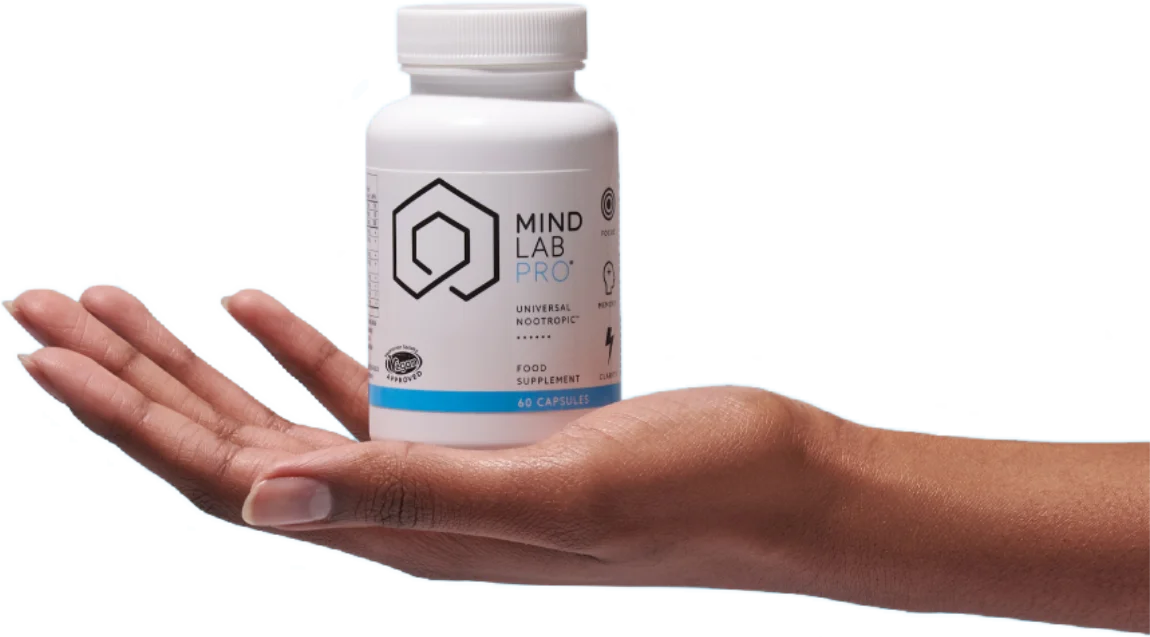Nootropics are substances that improve our mental performance and can help us stay on our A-game. Whether you're a student hoping to ace an exam, an athlete looking to take your performance to the next level, or a working professional needing a productivity boost, nootropics can benefit all lifestyles.
Although effective as standalone substances, "stacking" two or more complementary nootropics can boost their effects. You can build your own stack of DIY nootropics or purchase a stack that is pre-formulated. It is entirely up to you!
In this article, we give background on nootropics and tips on how to make your own nootropic stacks that work best for you.
We'll cover some of the best ingredients to consider for your DIY nootropics stack. We also discuss some drawbacks of homemade nootropic stacks, and present pre-made stacks that offer a great alternative. Let's get to it!
Key Takeaways
- DIY nootropics = control + flexibility, but they demand careful dosing, sourcing, and record-keeping.
- Big risks: inaccurate measuring, poor ingredient purity, over-stacking, stimulant/caffeine issues, and drug–supplement interactions.
- Cost isn’t always lower after adding scales, capsules, fillers, and time.
- Start low & slow—add one change at a time and track effects for 2–4 weeks.
- Prefer a clean, full-stack formula? Mind Lab Pro® delivers research-backed coverage without DIY complexity.
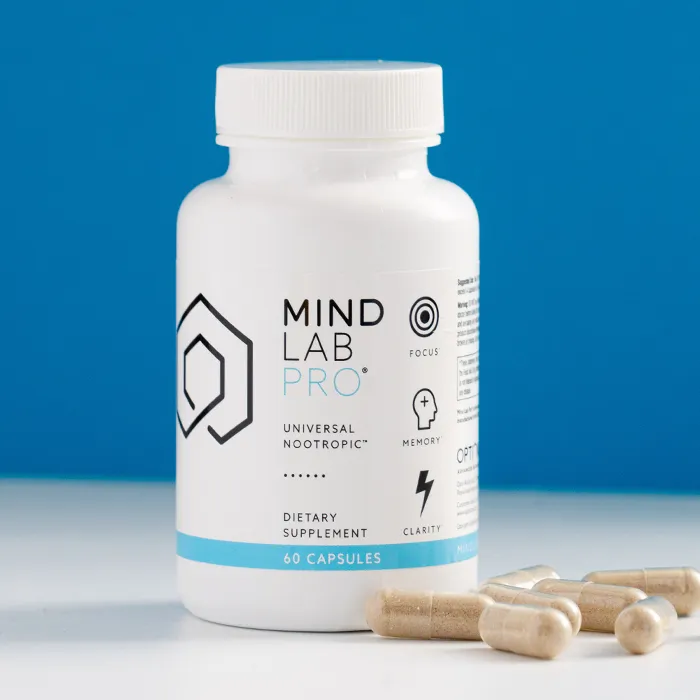
Top Ingredients to Make Your Own Nootropics at Home
When you're creating your own custom nootropic stack, you'll want to combine nootropics that are not only effective on their own, but also work well together as a team. Some effective options to consider:
- Citicoline: Top nootropic for mental energy, focus, attention and more
- Phosphatidylserine (PS): Best evidence-backed nootropic for memory
- Bacopa monnieri: Herbal nootropic with benefits for learning and cognition under stress
- Lion's Mane Mushroom: Mood support plus nourishment for nerve growth factor (NGF)
- Maritime Pine Bark Extract: Antioxidant complex and blood flow booster, supports attention
- N-Acetyl L-Tyrosine: Brain chemical support for peak mental performance under stress
- L-Theanine: Supports calm-headed mental clarity and sharp cognitive function
- Rhodiola rosea: Stress-busting adaptogen, great for mental energy and mind-body performance
- B-Vitamins: Crucial for brain chemicals and influence several aspects of cognition
- Caffeine: Probably the most "stacked" nootropic; combines well with other brain-boosters
Best Pre-Made Nootropic Stacks
There are some drawbacks to DIY nootropic stack building. If you decide that mixing powders and filling capsules is too much work (or otherwise decide it's just not for you), you can always opt to purchase a pre-made nootropic stack that includes high-quality ingredients. Some top picks:
- Best pre-made nootropic stack overall: Mind Lab Pro®
- Top caffeine pill stacked with nootropics: Caffeine 2
We'll discuss these supplements in more detail at the end of this article.
We are enjoying the clarity that Mind Lab pro is providing. We also stack Caffeine 2 with it in the morning. Seems to be working to keep the energy levels sustained throughout the day.Kathleen D.
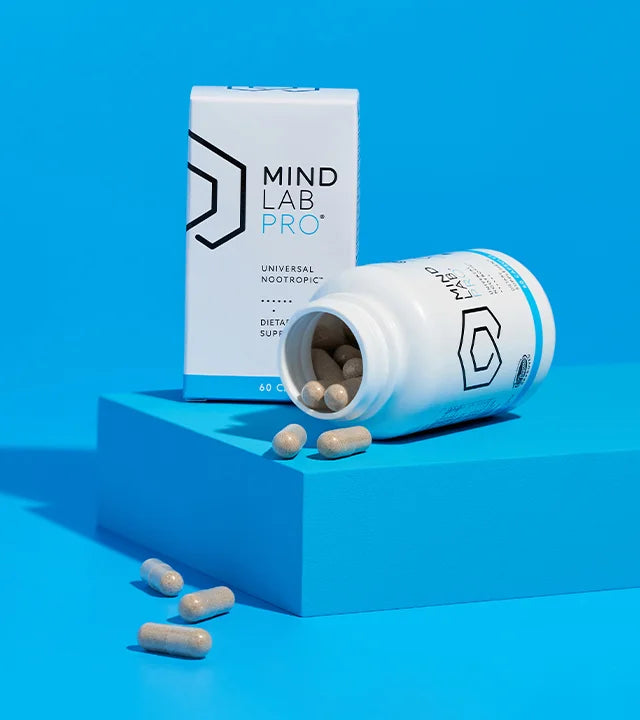
What is a Nootropic Stack?
Nootropics are drugs, dietary supplements and other substances made using synthetic or natural compounds that improve cognitive performance, including focus, attention, energy, memory, clarity, mood, creativity, and motivation.
Nootropics can be taken on their own as singular ingredients or can be combined with other nootropics that interact with each other to produce a combined effect. This means that taking a nootropic stack can exert stronger positive effects on brain function than if you were to take one substance on its own.
For example, caffeine exerts stimulant effects and improves brain function. But it also depletes the brain of important chemicals and later results in energy and mood crashes.
When taken alongside other nootropic substances that work effectively with caffeine -- such as L-theanine, L-Tyrosine and B-vitamins -- these adverse side effects are dampened while its positive effects are enhanced.
Building Your Own Nootropic Stack

When building your own nootropic stacks, it's important to use a combination of substances that work well as a team.
Some nootropics don't work well together. They can cancel each other out or even produce negative outcomes rather than compound their effects. A poor stack design can actually decrease the effectiveness more so than if you were to take a standalone nootropic.
A good nootropic stack not only considers many factors, including how different substances interact with each other, how long each substance remains in your system and more.
Choosing the right ingredients, therefore, requires a bit of skillful alchemy. There are several strategies for stacking, or combining, different nootropics to maximize their effectiveness. Some of these strategies include:
- Targeting Multiple Pathways: This involves combining nootropics that enhance the same aspect of mental performance, but through different mechanisms within the brain. Such a combination could potentially lead to a multiplied effect.
- Synergistic Combinations: Some nootropics, when combined, can amplify and enhance each other's effects on brain performance. The combined impact of these nootropics may be greater than the sum of their parts.
- Complementary Pairing: This approach is distinct from synergy. It involves combining nootropics that, while different, seem to complement each other in their effects. One nootropic may provide what another lacks, leading to a more holistic enhancement of brain functions.
Beginner nootropic stack example: L-Theanine + Caffeine. This combination is one of the most basic and popular nootropic stacks in the world. It combines all three of the strategies we just mentioned: multiple pathways, synergistic effects and complementary effects.
The result: L-Theanine may reduce caffeine side effects and jitters, enabling the user to experience maximum nootropic benefits from caffeine without its usual drawbacks.(1)
Who stacks nootropics?

For enthusiasts or "bio-hackers" in the nootropic community, stacking is more than just a method; it's a hobby. These individuals often buy various nootropics in powder form and fill their own capsules, allowing them to create customized stacks.
This method provides them the freedom to experiment with endless combinations and use trial and error to determine the most effective personal stack. It also provides them with a greater level of control over how they approach brain-boosting supplementation.
Stacking nootropics may be best suited for those who are:
- Ready to do a good deal of research into each nootropic they wish to combine, including looking into dosages, side effects, interactions, etc.
- Patient and methodical; ready for a trial-and-error process where they test different combinations of nootropics until they find what works best.
- Aware of potential risks associated with DIY nootropic stacking: the practice may create unknown variables related to dosage, combinations, side effects, interactions, etc.
Nootropic stacking can be an interesting and even rewarding hobby for those with a biohacking mindset, but it's not for everybody.
Who should not stack nootropics?
Some people would rather not bother with the meticulous process of researching nutrients, measuring powders, filling capsules, and otherwise mixing and matching nootropics.
Lucky for them, the market offers a wide range of pre-made nootropic stacks, including some great high-quality formulas.
Ready-made supplements do not offer the same level of customization as homemade stacks.
However, they are generally safer, easier, more user-friendly and, in some cases, more cost-effective, providing a simpler way for individuals to explore the benefits of nootropic stacking.
For these reasons, pre-made stacks are often the best nootropics for beginners.
Ingredient Shopping List for Homemade Nootropics
Whether you are making your own stacks or opting for pre-made nootropic supplements, the performance of your formula depends heavily on the natural nootropics it supplies.
Below are some of the nootropic compounds that we believe may offer the greatest brain boosting potential when combined into the best nootropic stack.
If you're making your own, you can purchase the following nootropics in bulk (raw powder) form and then combine them in your choice of capsule.
Citicoline

One of the most effective natural nootropics overall due to its diverse range of cognitive benefits, citicoline works partly by raising levels of choline in the brain. Taking a choline supplement (like Citicoline) is an important nutritional strategy for supporting overall brain health.
Choline is involved in brain cell regeneration and brain cell repair; it also supports acetylcholine and other neurotransmitters.
Beyond increasing choline levels in the brain, citicoline has been shown to boost brain vitality: researchers suggest it may raise brain energy metabolism by 13.6%.(2) As it energizes brain cells naturally, it may support energy without crashing.
Citicoline is great for stacks because it helps a wide range of cognitive functions. It is suggested to enhance clarity, attention,(3) concentration, focus, mental energy and more, as well as helping to protect the brain against age-related mental decline.
Citicoline also works in stim-free nootropic stacks because it can help to raise brain energy levels without the use of caffeine.
Phosphatidylserine (PS)

PS is a phospholipid nootropic that supports brain cell membranes creation, maintenance, and repair. It also plays a role in brain chemicals, as well as optimizing cell-to-cell communication in the brain.
In nootropic stacks, PS is a multitasker that is used to boost memory, stress resistance, mood, mental clarity and other cognitive functions while supporting overall health of the brain.(4,5).
As a brain nutrient overall, PS is considered among the best nootropics for memory. It helps long-term memory, short-term memory, working memory, learning... pretty much all facets of memory you can imagine. So if memory enhancement is your goal, PS is one nootropic that belongs in your stack.
Phosphatidylserine is also great for stacks because it is well-established. It has around for decades and has been the subject of numerous clinical trials as a brain supplement.
Some researchers have even suggested PS may even have potential for Alzheimer's disease, and at one time it had an FDA-qualified claim for helping with age-related mental decline.(6)
Did you know? PS has shown promise for helping athletic performance by bolstering stress resistance, focus and clarity.(7) This opens another exciting door of stacking: the nootropic pre-workout, where brain-boosters are combined with ergogenics (sport nutrients) for mind-body performance.
Learn more about Phosphatidylserine (PS)
Bacopa Monnieri

Bacopa is a folk herb used in India's Ayurvedic system of health that delivers active compounds called bacosides. In traditional use, it is an all-round brain optimizer. In today's stacks, it may be most utilized as a top nootropic for supporting new learning, dynamic memory performance and information processing.(8,9).
In addition, because it is an adaptogen herb, Bacopa may help to counter some of the negative effects of stress. Some researchers have described Bacopa as a "calming cognitive enhancer," with additional activity as a nootropic for anxiety.
If you are looking for a combination of learning, stress benefits, focused thinking and mental performance effects, Bacopa is an herb to consider for your nootropic stack.
It is also well-established and seems to play well with others: Bacopa has been combined with other herbs in Ayurvedic health traditions for centuries.
Learn more about Bacopa Monnieri
Lion's Mane Mushroom

Named for its unusual shaggy appearance, lion's mane mushroom is an edible fungus native to Asia that has long been consumed as a food and health-supportive herb.
This unique mushroom provides active nootropic compounds called hericenones and erinacines that may support better brain health and mental function by nourishing Nerve Growth Factor (NGF).
In terms of possible benefits, Lion's Mane Mushroom has been linked with improved cognitive function scores in some human research on individuals experiencing age-related cognitive decline.(10)
In healthy individuals, Lion's mane mushroom has shown potential to help with additional aspects of cognition, including mental clarity, anxiety support and mood support.(11)
As a nootropic for stacking, Lion's Mane may be most appealing for its potential to help maintain brain health while nourishing a bright and balanced mood.
Learn more about Lion's Mane Mushroom
Maritime Pine Bark Extract

Maritime pine trees live in harsh salty and windy environments but have adapted through the development of a unique antioxidant complex within their bark.
Researchers have found that maritime pine bark's antioxidants -- known as proanthocyanidins or flavonoids -- may offer neuroprotection benefits, potentially helping to guard healthy brain cells from damage caused by toxic free radicals and oxidative stress.
In addition, pine bark extract increases the release of nitric oxide. A potent vasodilator, nitric oxide relaxes blood vessels and increases blood flow to the brain, delivering vital oxygen and nutrients that energize the brain and promote sharp brain function.
Pine bark's influence on brain-derived neurotrophic factor (BDNF), a sort of "fertilizer" for the brain, further supports overall brain wellness.
In terms of its functional benefits for DIY nootropic stack, Maritime Pine Bark Extract is primarily valued for its antioxidant properties. Researchers have linked the antioxidants found in pine bark to cognitive support for memory and clarity, as well as suggesting they may help with age-related cognitive decline.(12)
Learn more about Maritime Pine Bark Extract
L-Tyrosine (as N-Acetyl L-Tyrosine)

L-tyrosine is a non-essential amino acid that helps the body to produce important neurotransmitters, including dopamine, epinephrine, and norepinephrine synthesis. These brain chemicals, known collectively as catecholamines, help regulate several aspects of mood, memory and performance-oriented brain functions.
Under stress, catecholamines become depleted, which results in cognitive issues. You know that feeling of mental fatigue and irritability when you're stressed? Low catecholamines can mean your brain is not firing on all cylinders and simply cannot perform as well as it should.
With close ties to stress and brain chemicals, L-Tyrosine is a prized performance-driving nootropic for stacks.
This amino acid seems to help people to enhance their performance under the most stressful and chaotic situations. It has been linked to benefits for memory, mood, mental performance and more -- all in human subjects who were tested under stress.(13,14)
If you are stacking to boost performance under challenging conditions -- for example, at a busy workplace, in a loud gym, while sleep deprived, etc. -- L-tyrosine is a must-have nootropic. Its ability to promote mental recovery and long-range brain health is a nice bonus, too.
Did you know? N-Acetyl L-Tyrosine (NALT) is a special form of L-Tyrosine believed to have improved bioavailability -- meaning it may be easier for the body to absorb and utilize. For the best possible benefits, consider the NALT form for your homemade stack.
Learn more about N-Acetyl L-Tyrosine
L-Theanine

L-theanine is a natural nootropic amino acid found in green tea lives promotes relaxation by boosting levels of calming brain chemicals, like GABA, serotonin, and dopamine, which also play a role in concentration, wakefulness, and thinking.
Meanwhile, it also regulates levels of excitatory brain chemicals that are linked to stress and anxiety, helping protect the brain from the effects of stress.
Research suggests L-theanine raises the activity of alpha brain waves, which relax the mind while increasing mental alertness and clarity.(15)
Overall, researchers suggest L-Theanine may help with attention performance, short-term memory and executive function, which refers to cognitive skills that are crucial for controlling and managing thoughts, actions, and emotions.(16) It has also been tied to clear thinking, enhanced creativity, and sharpened focus.
What does it all mean for stacking? L-Theanine is a valuable nootropic for stacks intended to boost mental performance while maintaining a calming, relaxing and tranquil state of mind. If you're building a stack for learning new things, for art creation or for creative problem solving, L-Theanine is a nootropic to consider.
In addition, L-Theanine is a must-have for any nootropic (or other) stack that includes caffeine, due to its potential to boost caffeine benefits as it reduces caffeine jitters and side effects.
Rhodiola Rosea

Rhodiola rosea is an herb that grows in mountainous regions in Europe and Asia. Its root is considered an adaptogen herb, supplying active compounds called rosavins and salidrosides that help your body deal with stress by reducing the release of stress hormones, such as cortisol. At the same time, Rhodiola supports performance-oriented brain chemicals.
Rhodiola delivers several benefits that have led to its reputation as a powerful mind-body performance enhancer. As a nootropic, it has been linked to memory and attention support. It has also been shown to enhance mental energy under stressful conditions and promote mood balance.(17, 18)
Rhodiola is an excellent choice for creating nootropic supplements designed for performance. It has a long history of use as a performance-enhancer in professional and sports-related settings, primarily due to its ability to promote peak function under stress. In fact, is its considered a legal performance enhancer.
Its stimulating effects are also useful in stacks for mental energy; it can be used in place of caffeine in stim-free stacks or combined with caffeine for a natural 2X energy boost. If you want a stack that improves memory, supports learning, improves attention span, supports brain energy and more, Rhodiola is one nootropic that may help you.
Learn more about Rhodiola Rosea
Vitamins B6, B9, and B12

B-Vitamins are vital for enhancing cognitive abilities, yet they are often under-consumed. The B-Complex as a whole benefits brain health, but three specific B vitamins stand out: B6, B9 and B12.
- Vitamin B6: This vitamin is a key ingredient in nootropic supplements due to its role in regulating neurotransmitters that are essential for cognitive function, mood, and memory.
- Vitamin B9 (folate): It plays a crucial role in maintaining balanced homocysteine levels, which is important for optimal brain circulation and neurotransmitter production.
- Vitamin B12: This vitamin is important for brain cells energy metabolism and the development of healthy nerve sheaths.
This combination of B-vitamins is great for any nootropic supplement because it supports some key aspects of overall brain health and cognitive performance: Blood flow to the brain, healthy brain cells, brain chemical synthesis and conversion and more.
The B-complex bioactivities support brain health first and foremost, but also optimize cognition. Researchers have linked these B-Vitamins to enhancements for brain information storage, information processing speed, and mood.(19-21)
Learn more about Vitamin B6, Vitamin B9, and Vitamin B12
Caffeine

Caffeine is one of the most widely used nootropics for building brain-boosting stacks for several reasons.
First and foremost, caffeine is a powerful central nervous system stimulant suggested to enhance multiple aspects of mental performance, including memory, alertness, mood, energy and reaction time.(22) This makes it an excellent choice for improving focus and concentration, which are critical components of cognitive performance.
Additionally, caffeine works effectively with other nootropics, potentially amplifying some of their effects.
As we mentioned earlier, when combined with L-theanine, a compound found in tea, caffeine can provide a smooth, jitter-free boost in energy and mental clarity. Research suggests L-Theanine may reduce some of the less desirable effects of caffeine like nervousness or jitters.
The best caffeine pills universally stack caffeine with L-theanine and other helper nutrients.
Finally, caffeine is great for brain stacks because it is already widely consumed. People know what to expect when they take it, and overall it has a good safety profile.
Ideally those who consume caffeine will have a good idea of their personal tolerance for stimulation and know what side effects may manifest -- jitters, sleep problems, mood issues -- if they take too much.
In general, researchers have suggested that low-to-moderate intake of caffeine offers the greatest potential for nootropic (and athletic) benefits.(23)
It is advisable to keep this in mind when building your DIY nootropic stack.
How to Make Your Own Nootropics Stacks at Home
Now that we've covered some of the top nootropics, let's see how they may be stacked together for specific purposes.
Homemade nootropics start with a clear vision on what you want to improve. Then, you can reverse engineer a formula by combining some of the best nootropics for your specific cognitive concerns.
For example, the list below starts with some of the most common aspects of mental performance people seek to improve through nootropics. Under each cognitive function below are nootropics that have been shown to help.
You can mix and match these areas of mental performance and the nootropics that help them until you find a combination that delivers the brain-boosting benefits you need.
Attention Stack
Citicoline, Maritime Pine Bark Extract, Rhodiola rosea, Caffeine, L-Theanine
Memory Stack
Phosphatidylserine (PS), Bacopa Monnieri, B-Complex, N-Acetyl L-Tyrosine, Rhodiola Rosea
Energy Stack
Citicoline, Caffeine, L-Tyrosine, B-Complex, Rhodiola Rosea
Mood Stack
Lion's Mane Mushroom, L-Theanine, PS, B-Vitamins, Rhodiola, B-Complex, N-Acetyl L-Tyrosine
Stress Stack
Rhodiola, Phosphatidylserine (PS), B-Vitamins, N-Acetyl L-Tyrosine, Bacopa Monnieri
With options like these you can make your own nootropics at home. Or, you can just buy a high-quality pre-made nootropic stack like the following we're about to cover next.
Mind Lab Pro® - Best Pre-Made Nootropic Stack Overall
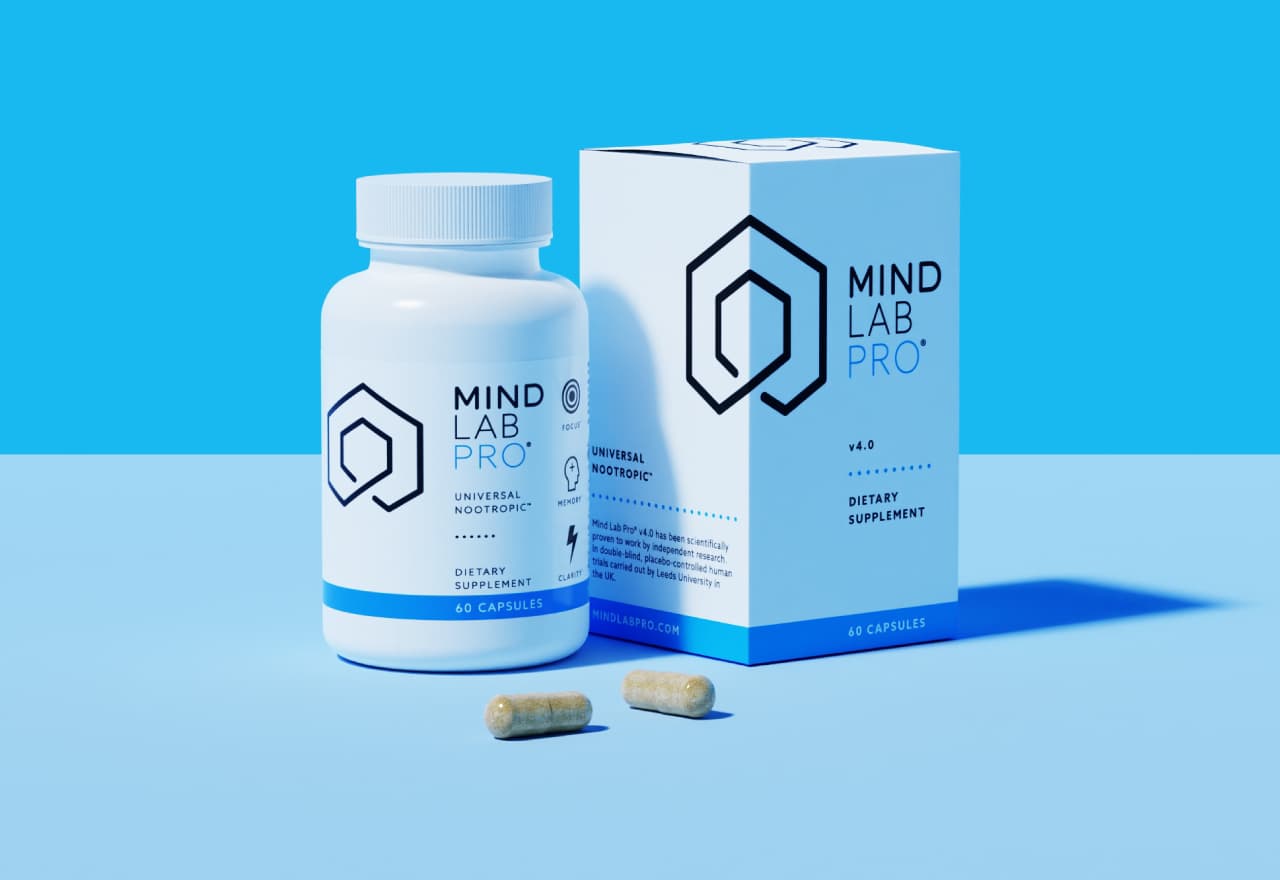
Mind Lab Pro® (MLP®) is one of the most popular pre-made stacks in the world. It supplies all of the nootropics for stacking we've just covered -- with the exception of caffeine, which can be taken separately (as coffee, a caffeine pill, tea, etc.) and stacks seamlessly with this formula.
The full-MLP ingredient list includes 11 research-backed nootropics, carefully stacked together:
- Citicoline, dosage 250mg
- Phosphatidylserine (PS), 100 mg
- Bacopa monnieri, 150 mg (full-spectrum extract, 24% bacosides with 9 bioactives)
- Organic Lion's Mane Mushroom, 500 mg (fruit and mycelium)
- Maritime Pine Bark Extract, 75 mg: (Standardized to 95% proanthocyanidins)
- N-Acetyl L-Tyrosine, 175 mg
- L-Theanine, 100 mg
- Rhodiola rosea, 50 mg: Standardized to 3% rosavins and 1% salidrosides
- NutriGenesis® B-Vitamins: Vitamin B6 (2.5 mg), Vitamin B9 (100 mcg), Vitamin B12 (7.5 mcg)
Mind Lab Pro® brain benefits:
- Supports attention, concentration, and sharp focus naturally
- Stim-free natural energy support; stacks several nootropic energy boosters
- Enhances all types of memory and recall, including working memory and learning
- Helps you perform under stress, as well as encouraging healthy recovery from stress
- Supports mental processing speed, mental clarity and ability to multitask effectively
- Helps mood in several ways; relaxation, calm, bright, positive and motivated mind
Overall, MLP is a "Universal Nootropic." That means it is designed with a "stacks-within-stacks" approach that can boost virtually any aspect of cognition.
So whatever you need at any given time -- focus, memory, relaxation, intensity -- this formula steps up to deliver it.
MLP® is also a big deal because it is backed by research.
One of the drawbacks of stacking your own nootropics is that homemade stacks are rarely backed by research. However, the same is true of most nootropic stacks you can buy retail. The ingredients may be researched, but the formulas -- the combinations used in the capsule -- are not.
MLP® is one of the rare pre-made nootropic stacks that has been studied in clinical research:
- Study 1: Subjects taking Mind Lab Pro improved performance on information processing tasks involving simple reaction time (SRT), choice reaction time (CRT) and anticipation.(24)
- Study 2: Subjects taking Mind Lab Pro showed significant improvements across memory functions, including auditory, vision, visual working, immediate and delayed recall memory.(25)
Research-backed benefits increase your chances of nootropic success.
In addition, because MLP® is a high-quality supplement that has been around for years, you have greater assurance of safe, well-tolerated and reliable results -- all of which are a "roll of the dice" when it comes to homemade stacks. This premade stack is extremely clean: Vegetarian Society Vegan Approved, GMO-free, synthetic additive-free, gluten-free and subjected to third party testing for objective proof of quality.
Best for: If you are looking for all of the benefits of nootropic stacking without the hassle of doing it yourself, MLP is a supplement for you. This high-quality formulation follows best stacking practices, culminating in a research-backed "whole brain boost" you can really feel, no matter who you are or what you are doing.

Performance Lab® Caffeine 2: Performance-Tuned Stimulation
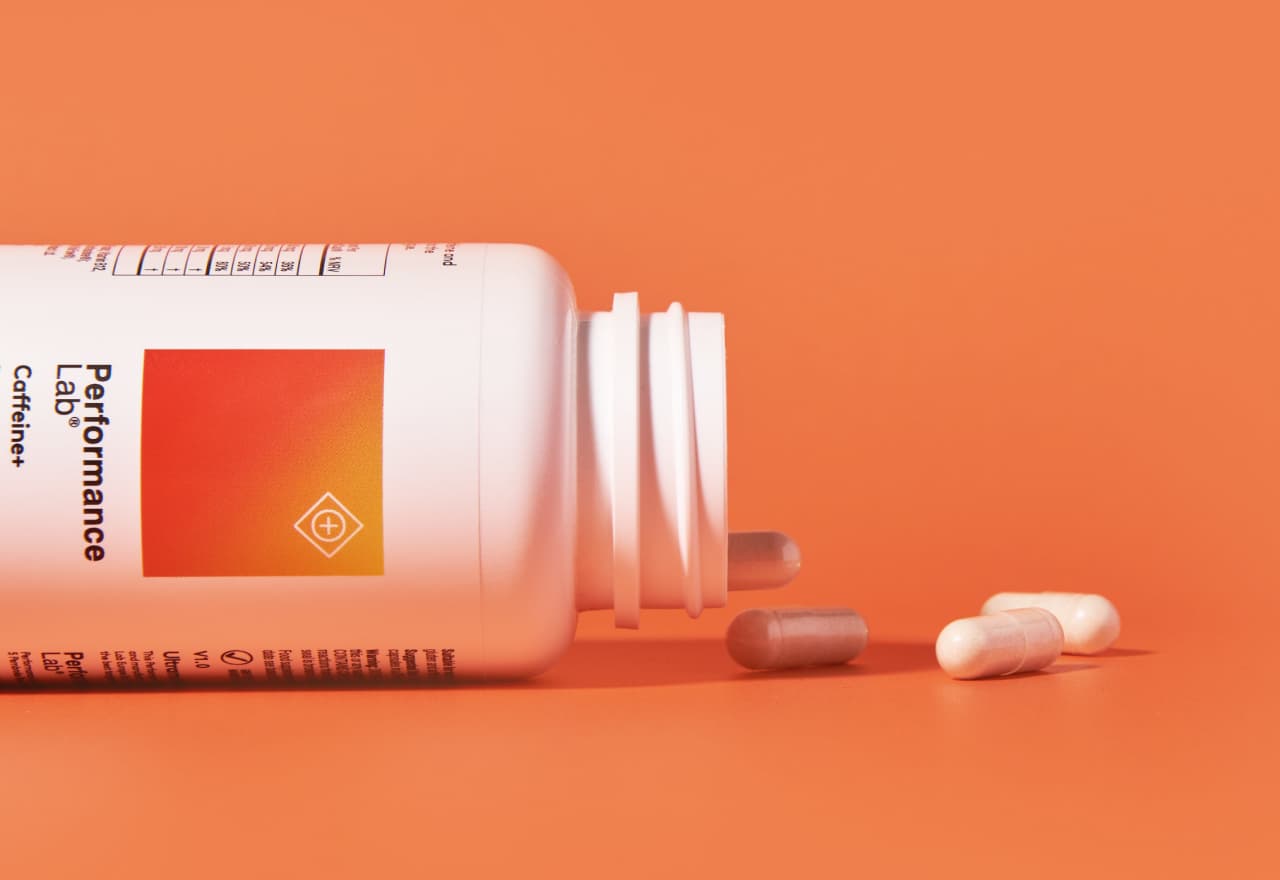
Caffeine + L-Theanine is one of the earliest and most celebrated nootropic stacks. Caffeine 2 takes this classic stack and updates it to deliver even delivering even bigger cognitive performance benefits in a high-quality, carefully designed stack that minimizes caffeine jitters, crashes, and next-day blues.
- Caffeine 2 supplies three nootropics we've covered -- Natural Caffeine, L-Theanine and L-Tyrosine -- plus additional nootropic support from NutriGenesis® B-Complex vitamins.
Caffeine 2 L-Theanine enhances all caffeine benefits and reduces side effects, all while actually nourishing the brain for long range health. It does this by restoring brain chemicals and nutrients that are typically depleted by caffeine use, thereby helping to maintain a state of healthy balance.
Another key point: Caffeine 2 is an incremental caffeine supplement. Each capsule supplies 50 mg of caffeine. So this is one pre-made stack that gives you control.
Depending on how much caffeine you need to hit peak performance, you can take one, two, three, or four capsules...with each one stacking on another 50 mg of caffeine and complementary nootropics.
Best for: Looking to stack nootropics with caffeine? This is a great formula for you. Its end result is clean energy, revitalized brainpower, and physical vitality with less worry about caffeine side effects like jitters, crashes, irritability and overstimulation. Plus, it can be stacked seamlessly with MLP and Performance Lab Mind.
Performance Lab® Caffeine 2
Smooth energy. Clarity. Focus. No jitters. No burnout. No crash.
Shop Now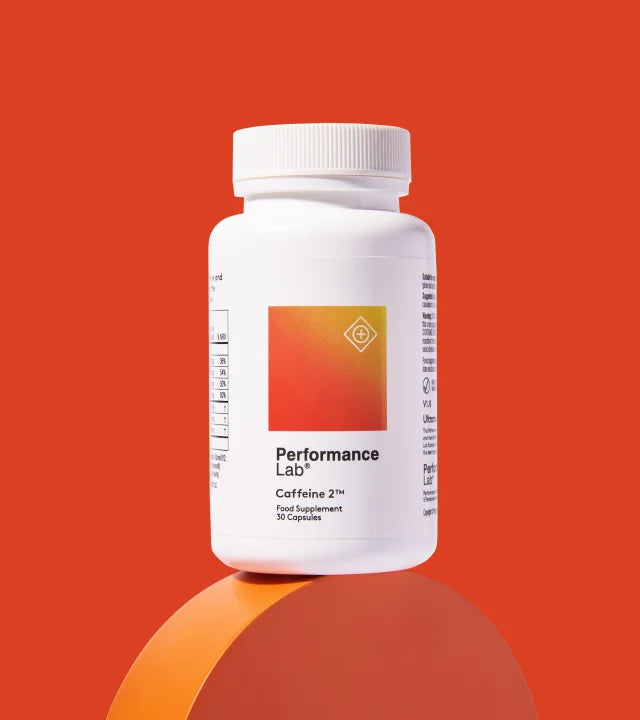
FINAL THOUGHTS
Nootropic stacking synergistically combines different supplements to enhance cognitive function. All of the individual nootropic ingredients mentioned in this guide are great choices for stacking together into a powerful brain-boosting formula, if you are interested in how to make smart drugs at home.
But perhaps even better: Opting for a high-quality pre-made stack with these ingredients ensures precise, balanced design for maximum benefit, eliminating the guesswork and potential risks of DIY stacking. It's a convenient, effective way to boost brain health and performance.
If you're ready to venture into nootropic stacks, any of the pre-made formulas mentioned in this article are a great way to get started on boosting your mental performance.
References
- Dodd, F. L. et al. "A Double-Blind, Placebo-Controlled Study Evaluating the Effects of Caffeine and L-Theanine Both Alone and in Combination on Cerebral Blood Flow, Cognition and Mood." Psychopharmacology 232.14 (2015): 2563-2576. PMC. Web. 1 Oct. 2016.
- Silveri MM et al. Citicoline enhances frontal lobe bioenergetics as measured by phosphorus magnetic resonance spectroscopy. NMR Biomed. 2008; 21(10):1066-75.
- McGlade E. et al. Improved Attentional Performance Following Citicoline Administration in Healthy Adult Women. Food and Nutrition Sciences. 2012;3:769-773.
- Glade MJ, Smith K. Phosphatidylserine and the human brain. Nutrition. 2015 Jun;31(6):781-786.
- Benton D1, Donohoe RT, Sillance B, Nabb S. The influence of phosphatidylserine supplementation on mood and heart rate when faced with an acute stressor. Nutr Neurosci. 2001;4(3):169-78.
- Crook T, Petrie W, Wells C, Massari DC. Effects of phosphatidylserine in Alzheimer's disease. Psychopharmacol Bull. 1992;28(1):61-6. PMID: 1609044.
- Jäger R, et al. Phospholipids and sports performance. J Int Soc Sports Nutr. 2007; 4: 5.
- Roodenrys S, et al. Chronic effects of Brahmi (Bacopa Monnieri) on human memory. Neuropsychopharmacology. 2002 Aug;27(2):279-81
- Bhattacharya SK, Ghosal S. Anxiolytic activity of a standardized extract of Bacopa monniera—an experimental study. Phytomedicine 1998;5:77-82.
- Mori K, et al. Improving effects of the mushroom Yamabushitake (Hericium erinaceus) on mild cognitive impairment: a double-blind placebo-controlled clinical trial. Phytother Res. 2009 Mar;23(3):367-72. doi: 10.1002/ptr.2634.
- Mayumi N, Shimizu K, Kondo R, Hayashi C, Sato D, Kitagawa K, & Ohnuki K 2010, Reduction of depression and anxiety by 4 weeks Hericium erinaceus intake. Biomedical Research. 31(4): 231-237.
- Spencer JPE, Vauzour D, Rendeiro C. Flavonoids and cognition: The molecular mechanisms underlying their behavioural effects. Archives of Biochemistry and Biophysics, Volume 492, Issues 1-2, December 2009, Pages 1-9
- Deijen JB1, Orlebeke JF. Effect of tyrosine on cognitive function and blood pressure under stress. Brain Res Bull. 1994;33(3):319-23
- Thomas JR, et al. Tyrosine improves working memory in a multitasking environment. Pharmacol Biochem Behav. 1999 Nov;64(3):495-500.
- Manuel Gomez-Ramirez, et al. The Effects of L-theanine on Alpha-Band Oscillatory Brain Activity During a Visuo-Spatial Attention Task. Brain Topogr (2009) 22:44-51
- Baba Y, Inagaki S, Nakagawa S, Kaneko T, Kobayashi M, Takihara T. Effects of l-Theanine on Cognitive Function in Middle-Aged and Older Subjects: A Randomized Placebo-Controlled Study. J Med Food. 2021 Apr;24(4):333-341. doi: 10.1089/jmf.2020.4803. Epub 2021 Mar 22. PMID: 33751906; PMCID: PMC8080935.
- Shevtsov VA, et al. A randomized trial of two different doses of a SHR-5 Rhodiola rosea extract versus placebo and control of capacity for mental work. Phytomedicine. 2003 Mar;10(2-3):95-105.
- Darbinyan V, Aslanyan G, Amroyan E, Gabrielyan E, Malstrom C, Panossian A. Clinical trial of Rhodiola rosea extract SHR-5 in the treatment of mild to moderate depression Nord J Psychiatry. 2007; 61(5):343-348.
- Deijen JB, van der Beek EJ, Orlebeke JF, van den Berg H. Vitamin B-6 supplementation in elderly men: effects on mood, memory, performance and mental effort Psychopharmacology. 1992;109(4):489-496.
- Durga J, et al. Effect of 3-year folic acid supplementation on cognitive function in older adults in the FACIT trial: a randomised, double blind, controlled trial. Lancet. 2007 Jan 20;369(9557):208-16.
- McCarty MF. High-dose pyridoxine as an 'anti-stress' strategy. Med Hypotheses. 2000 May;54(5):803-7
- Institute of Medicine (US) Committee on Military Nutrition Research; Marriott BM, editor. Food Components to Enhance Performance: An Evaluation of Potential Performance-Enhancing Food Components for Operational Rations. Washington (DC): National Academies Press (US); 1994. 20, Effects of Caffeine on Cognitive Performance, Mood, and Alertness in Sleep-Deprived Humans.
- Ruxton, C. The impact of caffeine on mood, cognitive function, performance and hydration: A review of benefits and risks. Nutr. Bull. 2008, 33, 15-25.
- Utley A, Gonzalez Y, Imboden CA. The Efficacy of A Nootropic Supplement on Information Processing in Adults: A Double Blind, Placebo Controlled Study. Biomed J Sci & Tech Res 49(1)-2023. BJSTR. MS.ID.007746
- Abbott-Imboden C., Gonzalez Y., Utley A. (2023). Efficacy of the nootropic supplement Mind Lab Pro on memory in adults: Double blind, placebo-controlled study. Human Psychopharmacology: Clinical and Experimental, e2872.

